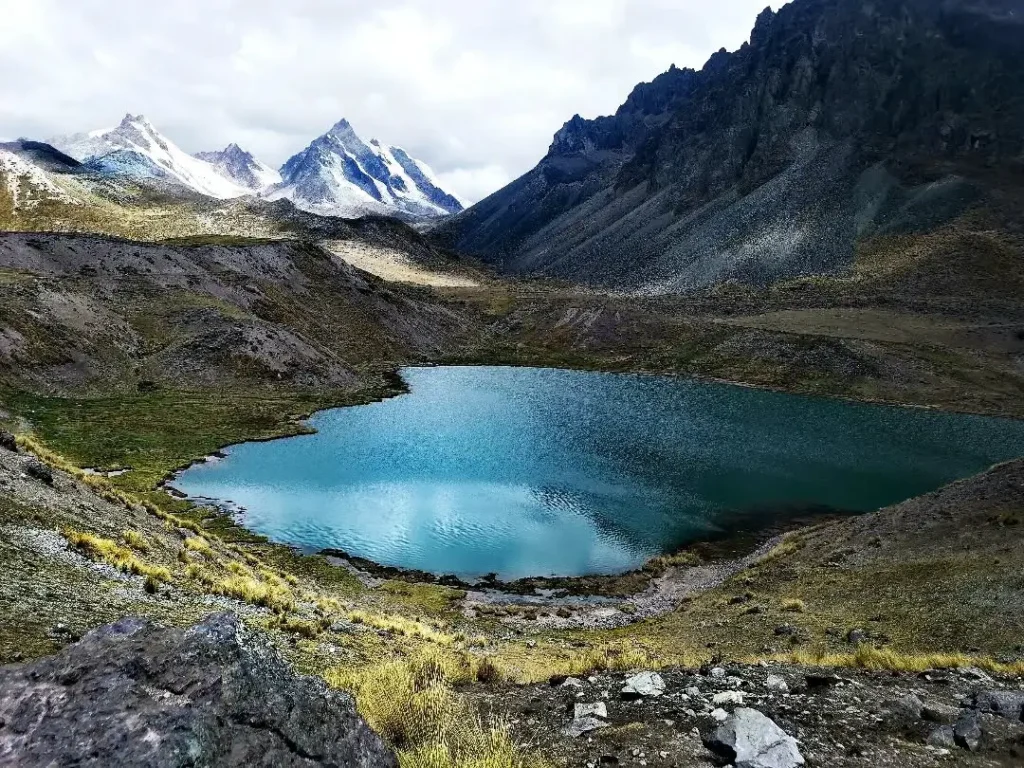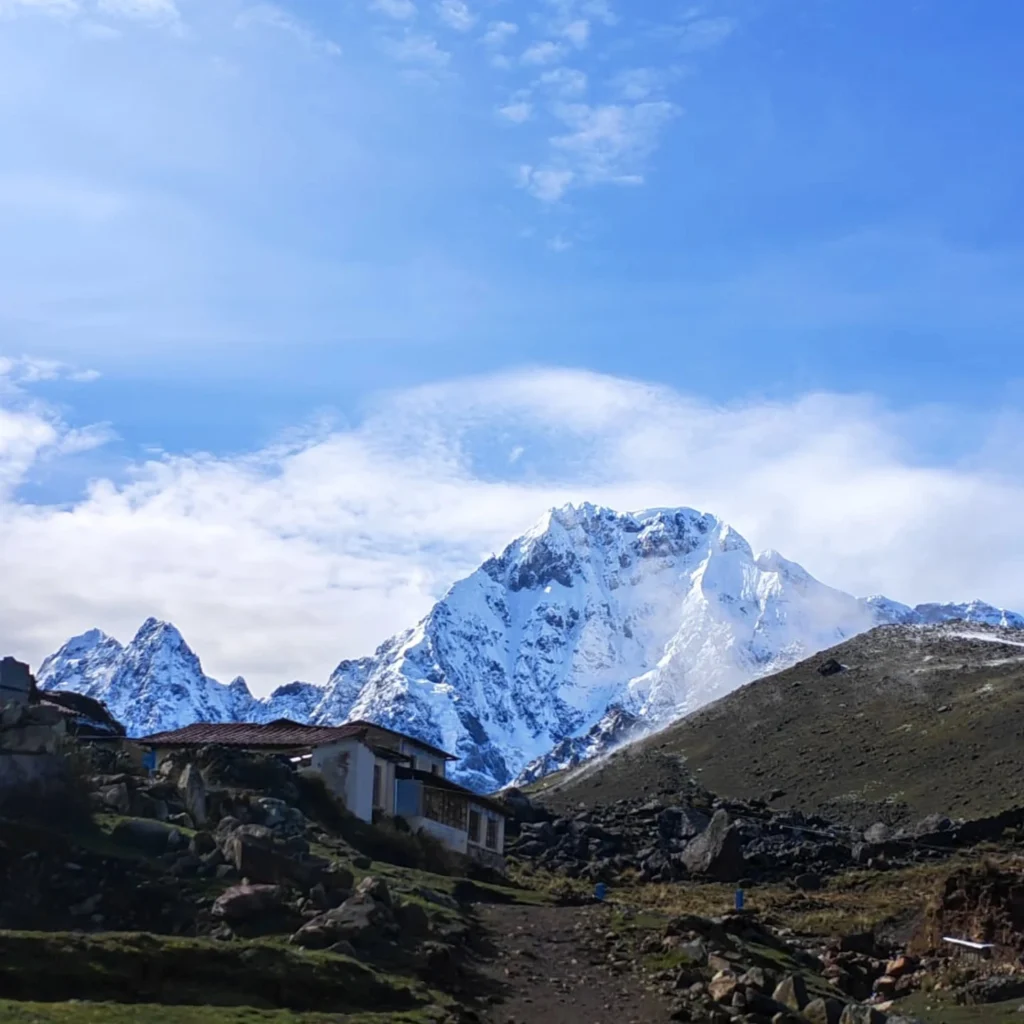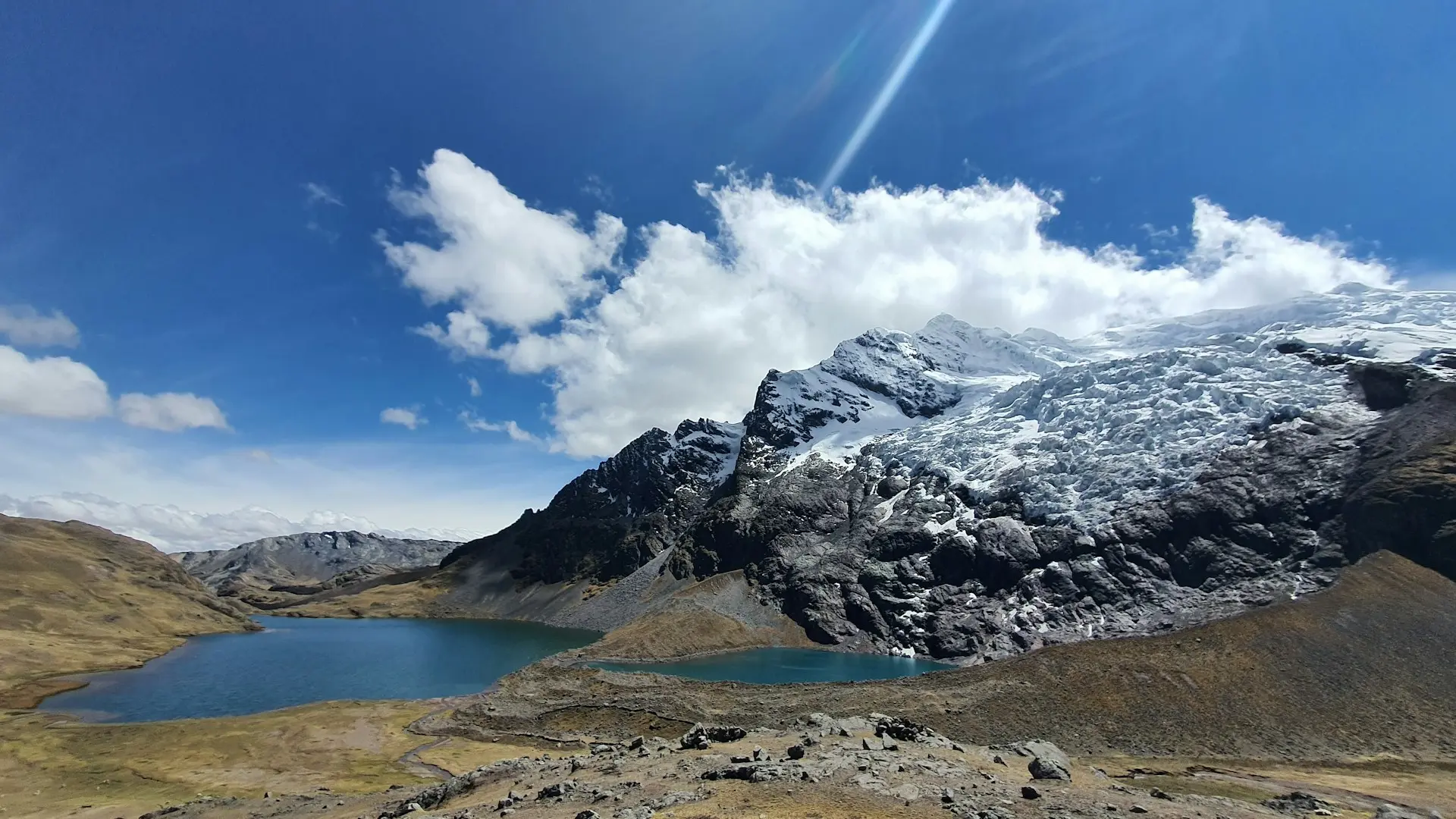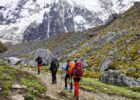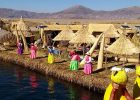This circuit around the Ausangate snow-capped mountain allows you to visit the Q’omercocha Lagoon (Green Lagoon), Azulcocha, Otorongo, Pucacocha, Alqacocha, Huchuy Pucacocha, and the beautiful China Lagoon. Each lagoon stands out for its intense colors, which range from greens, blues, and turquoise.
In addition to the stunning landscapes, you will be able to see Andean fauna up close, such as alpacas and vicuñas, and finish at the Pacchanta hot springs to relax. This is an ideal experience for those seeking adventure and connection with Andean culture and nature.
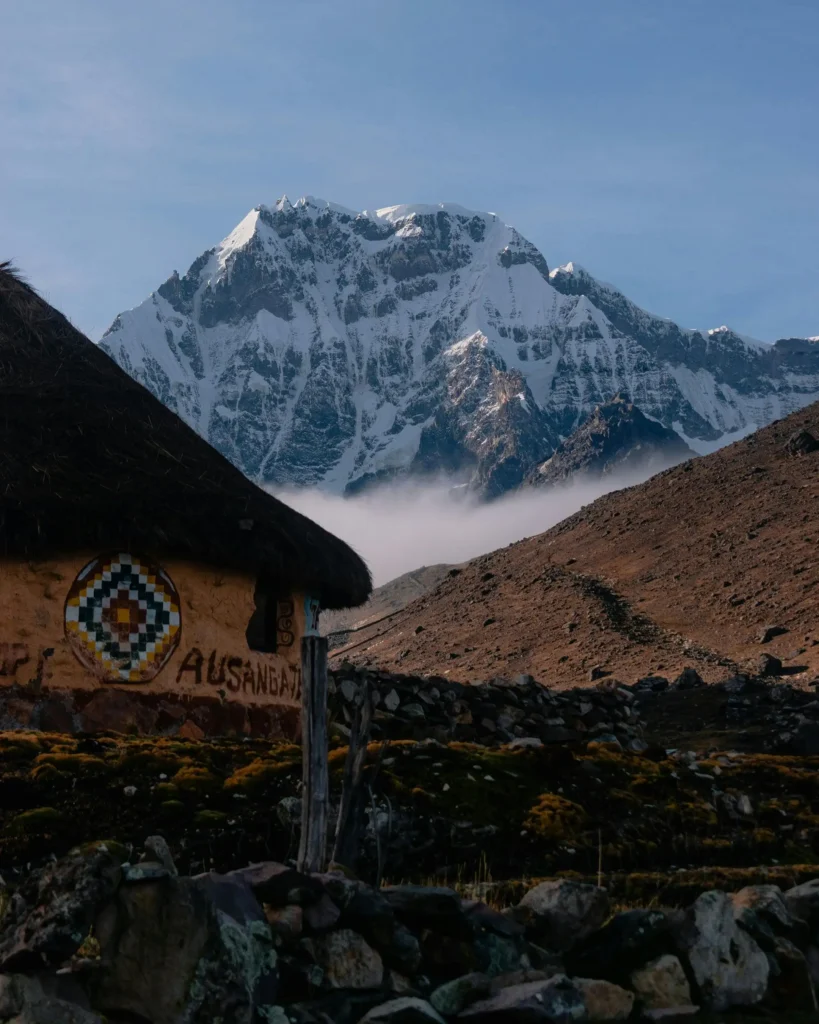
What are the 7 Lagoons of Ausangate?
The 7 lagoons of Ausangate are a circuit of intensely colored lagoons, located around the imposing Ausangate snow-capped mountain in Cusco. Each of these lagoons has a unique charm, and their beauty is the result of the minerals that reflect blue, green, and turquoise hues.
Exact location of the Ausangate Lagoons
The lagoons are located in the Vilcanota mountain range, in the Ocongate district, Quispicanchi province, approximately 100 kilometers from the city of Cusco.
How to get to the 7 lagoons from Cusco
The Ausangate Snow-capped Mountain and its cultural significance
Ausangate is a sacred mountain in Andean tradition and is considered an “Apu” or protective spirit. Local communities celebrate rituals and offerings in its honor, asking for protection and good harvests. This snow-capped mountain is also the center of the annual Qoyllur Rit’i pilgrimage, an important religious festival in Peru.
Flora and fauna in the Ausangate surroundings
The ecosystem around Ausangate is diverse, and you can see species such as vicuñas, alpacas, and llamas. The flora includes ichu (Andean grass) and medicinal plants that have been used by the communities for generations. This high-altitude environment is home to species adapted to the cold and altitude.
Guide to the 7 Lagoons Circuit
The circuit is of moderate to high difficulty and takes about one day to complete. During the journey, visitors will be able to see the Q’omercocha, Azulcocha, Otorongo, and other lagoons, each with its unique color and features. It is recommended to hire a guide or join a tour for a safe and enriching experience.
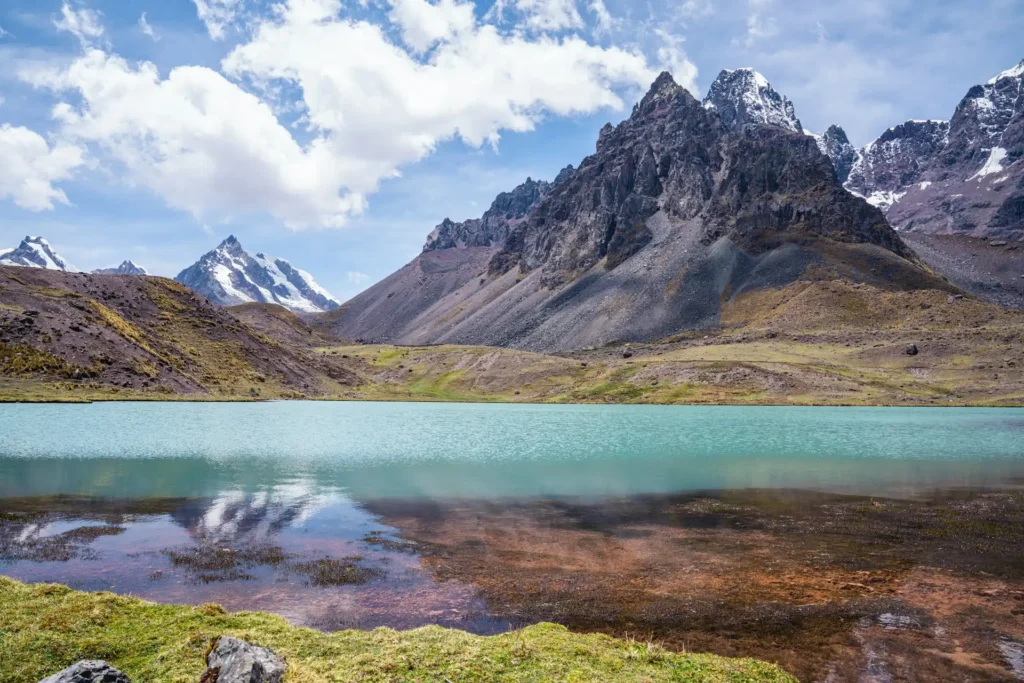
Laguna Q’omercocha (Green Lagoon)
The Q’omercocha lagoon (Quechua name), known as the Green Lagoon, owes its color to the minerals in its waters. It is one of the most visited due to its beauty and proximity in the circuit, offering an impressive view of the Ausangate snow-capped mountain in the background.
Laguna Azulcocha and other lagoons in the circuit
The Azulcocha Lagoon, as its name suggests, has a deep blue tone and is another gem of this journey. Like the other lagoons, such as Otorongo and Pucacocha, it also has its own features and spectacular views.
Organized tour vs. independent trip
An organized tour offers comfort in terms of transportation, meals, and specialized guides, making the experience easier for those not accustomed to the altitude.
However, the more adventurous or those who already know the route can plan the trip independently, always keeping in mind the challenges of the weather and altitude.
Benefits of taking a guided tour
A guided tour allows you to learn in depth about the history and culture of Ausangate, as well as complete the circuit safely. Guides are experts in the routes and are prepared to assist in case of altitude sickness or any unforeseen events.
How to plan the visit on your own
To visit on your own, it is essential to prepare proper equipment, reserve transportation to Tinki, and anticipate the challenges of altitude. It is also recommended to have previous trekking experience and carry a good map of the area or knowledge of the route.
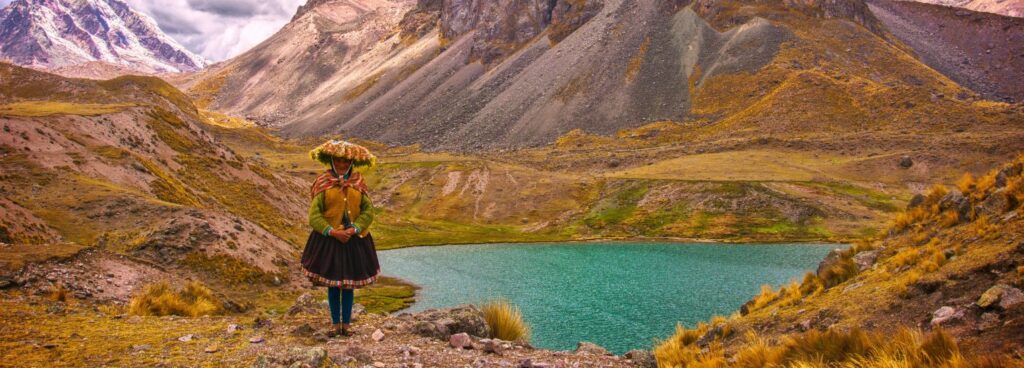
The hot springs of Pacchanta
Pacchanta is the final stop of the journey and has natural hot springs, perfect for relaxing after the trek. These waters have medicinal properties, and their temperature helps relieve fatigue and muscle aches.
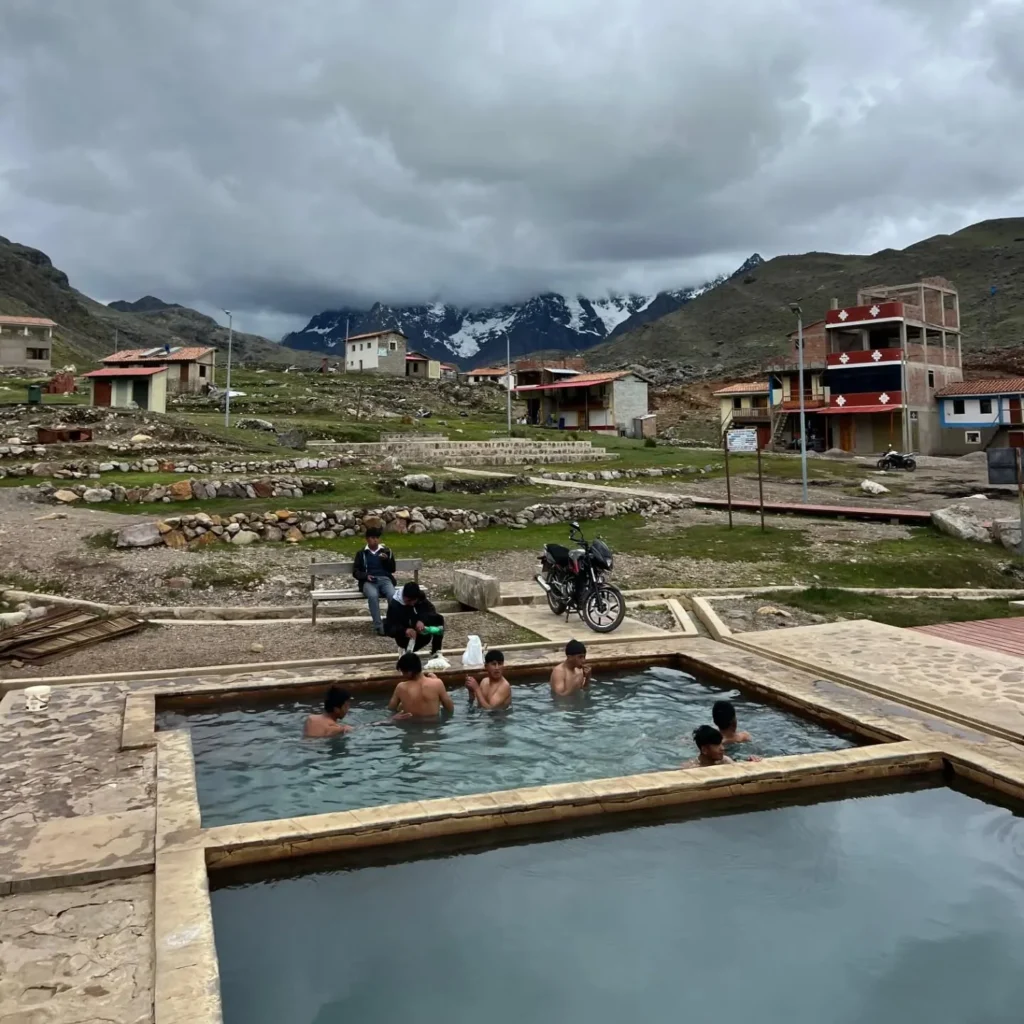
Relaxation and activities in Pacchanta
In addition to the hot springs, you can enjoy a unique connection with the Andean landscape and local hospitality in Pacchanta. You can also taste typical Andean dishes prepared by local families.
Essential trekking tips
It is crucial to acclimatize before completing the circuit and bring warm clothing, sunscreen, and water. Weather conditions can change quickly, so it’s better to be prepared for cold, wind, or rain.
Preparation for altitude and weather in Ausangate
The trip reaches altitudes of up to 4,700 meters, so it is necessary to be prepared for altitude sickness. Bringing medications like soroche pills and drinking coca tea can help. It is also recommended to move slowly and avoid excessive exertion.
Equipment and recommendations for the circuit
It is recommended to wear trekking shoes, waterproof clothing, a cap, sunglasses, and sunscreen. It’s also important to have a first aid kit and energy snacks for the journey.
Image gallery of the 7 Lagoons of Ausangate
